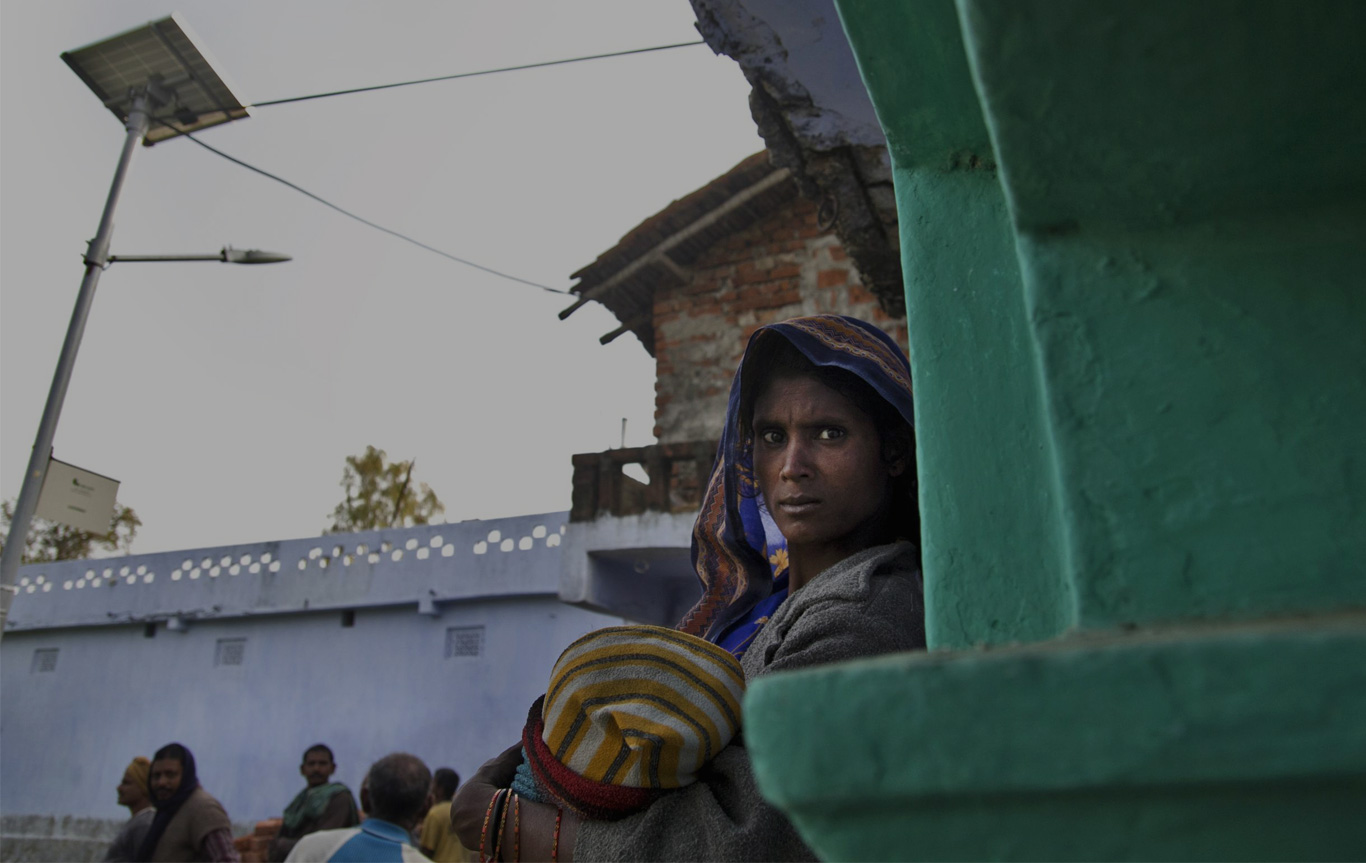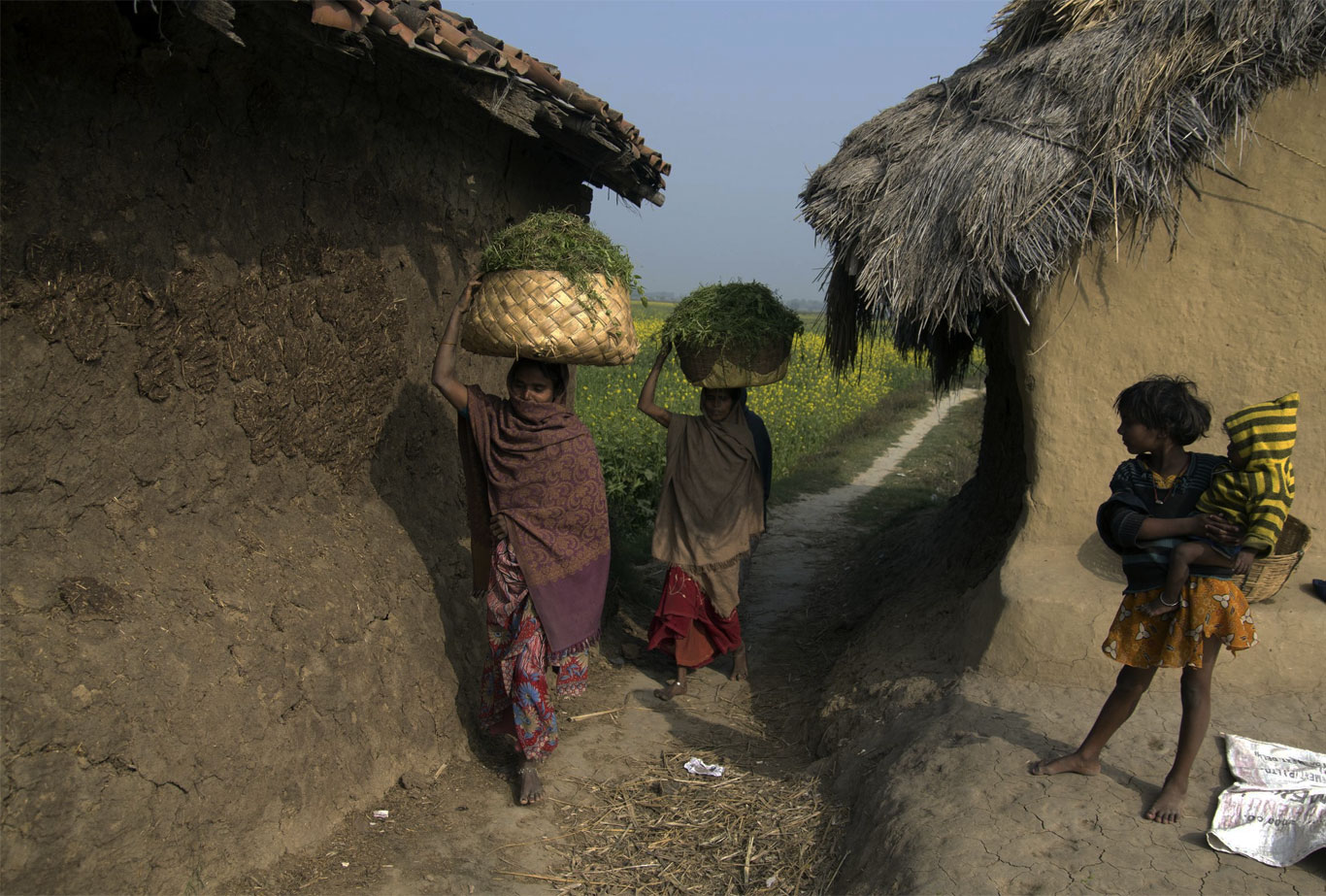
From
womb
to tomb.
Dharnai, Bihar - Till back in November last year, meeting 25-year-old Soni Devi was anything but a pleasant experience. She had a permanent frown slapped across her face and almost every sentence she spoke ended in a howl. She would curse the government for neglecting her, her husband for being unsupportive, her landlord, whose land she tills, for not being lenient with her, but most importantly – she would curse God for creating her a woman.
A child-bride married to an alcoholic, Soni works as a farm labourer in order to provide for her three children, her husband and herself. She gets 3 kg rice daily as her income for toiling in the fields and 2.75 litres of kerosene oil monthly from the government ration shop. But it was never sufficient, she had then complained. “The kids need the kerosene (oil for lamps) to study and I need it for cooking. How can we do all that in so little?” she said with a frown.
To keep the lamp and the stove burning, Soni used to sell the rice she earned to buy extra litres of kerosene oil from the black market for Rs 40 per litre. Exhausted by a life of poverty and constant struggle, Soni said she was desperately waiting for her daughter to turn 12 so she could marry her off. “I’ll then have one less mouth to feed,” she said.
From womb to tomb, women like Soni Devi struggle every day to fulfill basic necessities of food, water and fuel for their families. Women in rural India walk long distances, endure hardships, get abused, raped and even die as they go about their daily lives. There are well-documented studies of women who walk miles to collect water or fuel, describing the experience as walking into harassment zones.

While boys come home and study in the daylight, girls as young as six, have to finish household chores before they can get down to studying by the dim-light of hazardous kerosene lamps. The World Bank estimates that breathing kerosene fumes is the equivalent of smoking two packets of cigarettes a day and two-thirds of adult females with lung cancer in developing nations are non-smokers. It is no wonder then that most girls in rural India give up education too early.
Lack of access to modern energy services further turns the absence of basic facilities, like sanitation and healthcare, into pressing problems.
In Bihar, reportedly 50% of rape cases happen when women or girls go to the fields to defecate. As recent as May 2014, lack of toilet at home and absence of proper lighting in the streets ended in the rape and death of two Budaun sisters in Uttar Pradesh.
The future of women in Dharnai, however, is no longer as grim as that of the Budaun sisters. Since December, 2013, a Greenpeace initiative has started supplying 24x7 electricity to the village households on a trial basis, through a solar-powered smart microgrid.
Since electricity touched Dharnai, it has meant improvement of quality of life in the village. It has meant that girls are able to study at night; a rural housewife, like Guddu’s wife, has resumed her college studies which she left before marriage; and it has meant that Soni Devi no longer has to trade her food for kerosene. Instead, she has traded her frown for a smile.
Lighting up homes in a village like Dharnai means giving women and girls in rural India a chance at education; a chance to live their life with dignity and respect; and a chance for better health and livelihood. Access to energy acts as catalyst that drives other socio-economic improvements. When provided, electricity can help women like Soni Devi rise up and not be reduced to mere statistics and numbers in government files.